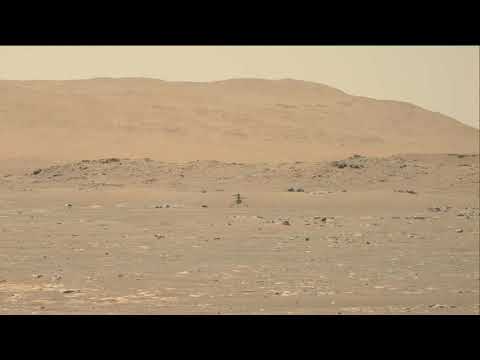At 3:34 am on April 19, the NASA’s Ingenuity helicopter took off from the surface of Mars, rose to an altitude of 10 feet for 30 seconds and then safely landed back down.
The event marked the first time in the mankind’s history that an aircraft achieved a “powered, controlled flight” on another planet. NASA confirmed at 3:46 am the flight succeeded after receiving data from the helicopter via the Perseverance Mars rover.
This engineering feat was done with Linux, open-source software, and a NASA-built program based on the Jet Propulsion Laboratory’s (JPL) open-source F prime framework.
NASA’s Ingenuity Mars Helicopter is a 4-pound solar-powered mini-copter. It runs an open source F Prime Linux distribution that was designed primarily for CubeSats along with a more customized flight software framework that runs on top of it.
The Ingenuity helicopter runs the Qualcomm Snapdragon 801 SoC, which was seen on smartphones in 2014 such as the Galaxy S5 and OnePlus One. The Snapdragon 801 chip is a 2.26GHz quad-core Arm-compatible system-on-chip with 2GB RAM and 32GB flash memory.
The main driver is because the Snapdragon 801 board came already with Linux. We like [Linux] don’t get me wrong, but it’s because the chip came prepackaged.
People use Linux for all sorts of reasons, not only is it in things like server farms. This flight project is very new for NASA, we’re very careful about what kind of software is allowed on a vehicle, so I do see this as a win for Linux. We’re finally getting payloads using Linux in these deep space missions, where it hasn’t been used before,
Tim Canham, a senior software engineer at NASA’s JPL lab
In addition to, NASA’s Mars 2020 mission is the first one to use an open source OS like Linux in space.
GitHub awards badge to 12,000 open source developers
Open source software collaboration and code hosting platform GitHub has now announced that it will add a new “Mars 2020 Helicopter Mission” badge on the profiles of every GitHub user who contributed to an open source project or any library that was used by NASA’s helicopter. In fact, nearly 12,000 developers on GitHub contributed to Ingenuity’s software via open source.

Many of the people who are getting a badge probably have no idea their software is being used to fly a helicopter on another planet. We wanted to make sure everyone was recognized for their contributions to this incredible human achievement.
Martin Woodward, GitHub Senior Director of Developer Relations
Congratulations to the teams at NASA and JPL. Congratulations to the thousands of developers who made the first Martian flight possible. We’re all still here on Earth, but your code is now on Mars!

